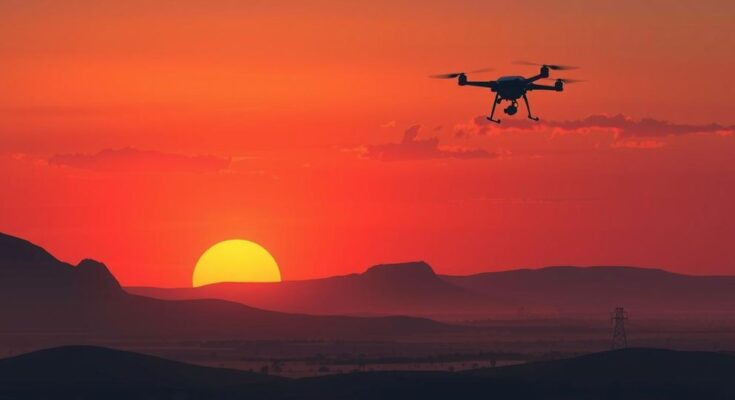President Donald Trump has escalated rhetoric against Iran, threatening to hold it responsible for Houthi attacks from Yemen. On Truth Social, he declared that any further Houthi aggression will be met with a strong U.S. response. Trump’s warnings coincide with military action against the Houthis following their threats to Israeli vessels. With ongoing tensions, the scenario poses challenges for diplomatic relations and negotiations over Iran’s nuclear ambitions.
United States President Donald Trump has intensified his rhetoric against Iran following recent U.S. airstrikes on Houthi positions in Yemen. He emphasized on his social media platform, Truth Social, that Iran would be held accountable for any attacks executed by the Houthi rebels. This assertion marks an escalation in Trump’s ongoing diplomatic and military pressure on the Iranian government.
In his communication, Trump claimed, “Let nobody be fooled! The hundreds of attacks being made by Houthi… all emanate from, and are created by, IRAN.” He warned that any further Houthi actions would provoke a significant U.S. response, stating, “Any further attack… will be met with great force.”
The Houthis have conducted numerous assaults against commercial ships in the Red Sea as a protest against Israel’s actions in Gaza. Analysts recognize Iran’s role in equipping the Houthis, who are perceived as part of Iran’s informal “axis of resistance.” Trump’s recent remarks indicate a serious escalation and imply potential military responses directly aimed at Iran.
Trump continues to advocate for Iran to cease its support of the Houthis and has warned that henceforth, Houthi attacks will be considered as actions instigated by Iran. He stated, “Every shot fired by the Houthis will be… from the weapons and leadership of IRAN… and those consequences will be dire!”
The political environment presents challenges for Trump as he communicates with Iranian leaders regarding nuclear negotiations. Despite his efforts, Iranian Supreme Leader Ayatollah Ali Khamenei has previously dismissed Trump’s talks as acts of “bullying,” stating that the U.S. ended the prior nuclear agreement.
In response to the Houthis’ threats against Israeli vessels, Trump has escalated U.S. military action. An extensive bombing campaign over the weekend resulted in numerous airstrikes across several Yemeni provinces. Trump sternly warned Iran to terminate its backing of the Houthis, asserting that failure to do so would lead to severe repercussions for Iran.
Since November 2023, the Houthis have targeted nearly 100 vessels in regional waters. While Trump takes a more combative stance, his predecessor, President Joe Biden, had framed earlier attacks to counter Houthi military capabilities without escalating the situation. Trump criticized Biden’s approach as ineffectual, suggesting a clear divergence in their military strategies.
As tensions escalate, Houthi leadership has vowed to retaliate against U.S. attacks. Trump’s tactical decision to strike the Houthis appears to counter his previous campaign promises of reducing U.S. involvement in foreign conflicts, indicating a potential shift in strategy as he seeks to leverage increased military action to spur negotiations with Iran.
In conclusion, President Donald Trump’s recent statements and military actions indicate a significant escalation in U.S. tensions with Iran and the Houthis. He firmly holds Iran accountable for Houthi actions in Yemen, laying the groundwork for potential military interventions. While he pushes for an end to Iranian support for the Houthis, the political ramifications of these actions could influence his negotiations regarding Iran’s nuclear program and his broader Middle Eastern strategy. As both sides brace for potential escalation, the implications of this conflict could reverberate throughout the region.
Original Source: www.aljazeera.com




